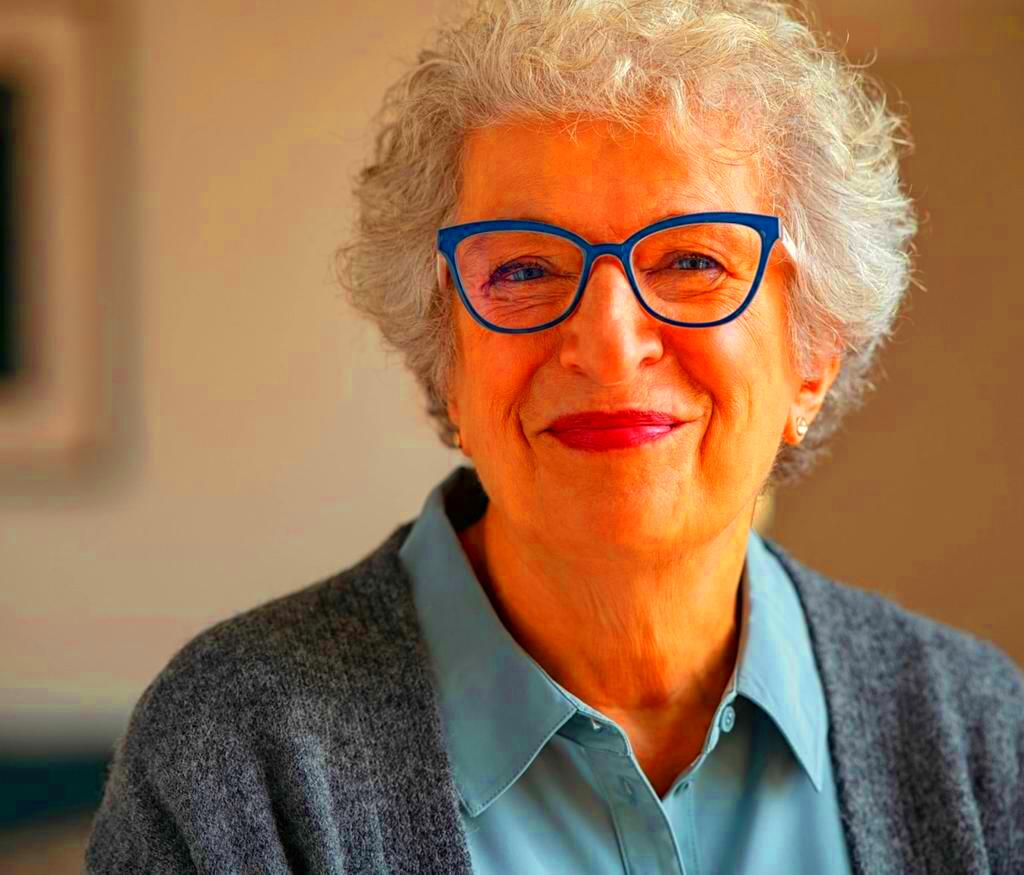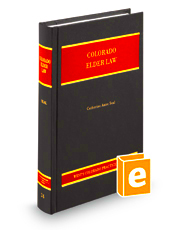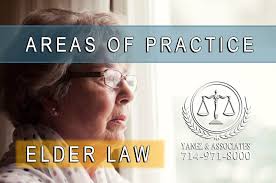Colorado Elder Law Explained
In Colorado the field of law plays a crucial role in addressing the specific needs of elderly individuals. Having observed the complexities that seniors and their families encounter in matters I recognize the importance of being well versed in elder law. This area covers a range of topics such as planning, guardianship and safeguarding against elder abuse. While navigating this intricate landscape can be daunting with support seniors can safeguard their preferences and uphold their rights effectively.
Key Aspects of Colorado Elder Law

The field of elder law in Colorado addresses various matters that affect senior citizens. Lets delve into a few important facets.
- Estate Planning: This involves creating legal documents that dictate how a person’s assets will be distributed after their passing. It’s crucial for ensuring that one’s wishes are followed and can help avoid disputes among family members.
- Guardianship and Conservatorship: When seniors can no longer manage their own affairs, legal arrangements may be needed to appoint someone to handle their personal and financial matters.
- Long-Term Care Planning: This includes preparing for the costs and logistics of long-term care, including nursing homes and assisted living facilities.
- Medicaid and Medicare: Understanding these programs is essential for seniors to receive the medical and financial assistance they need.
- Protection from Abuse: Elder law also addresses issues related to protecting seniors from physical, emotional, and financial abuse.
Witnessing the toll it takes on families both emotionally and financially when elder law issues are not handled properly has reinforced my belief in the significance of having legal planning and assistance in place.
Understanding Estate Planning for Seniors

Planning your estate involves more than simply creating a will; it’s about making sure that your legacy is managed exactly the way you want it to be. For older adults this entails taking into account various factors to safeguard their assets and support their family members. Here are some key aspects to consider.
- Wills: A will outlines how you want your assets distributed after your death. It’s the cornerstone of estate planning and helps avoid confusion among heirs.
- Trusts: Trusts can manage your assets during your lifetime and distribute them after your death. They can also help reduce estate taxes and avoid probate.
- Power of Attorney: This document appoints someone to make financial or medical decisions on your behalf if you become unable to do so.
- Healthcare Directives: These directives specify your preferences for medical treatment in case you are incapacitated.
Based on what I’ve witnessed families can really gain from careful estate planning. It brings a sense of comfort and makes sure that the elderly persons desires are respected. It goes beyond just paperwork; it’s about protecting the future for both you and your dear ones.
Wills and Trusts: What You Need to Know

When people think about making plans for the future they often get caught up in the complexities of wills and trusts. I’ve witnessed how perplexing these ideas can be, particularly for individuals who are just starting to navigate estate planning. However there’s no need to fret; let’s simplify things and make it easier to understand.
Wills are legal documents that outline how you want your assets distributed after you pass away. They are often the first step in estate planning. Here are some key points about wills:
- Simple Distribution: A will specifies who gets what. For example, you might want to leave your jewelry to your daughter and your house to your son.
- Executor Appointment: Your will names an executor, a person who will carry out your wishes and manage your estate.
- Probate Process: Wills go through probate, a legal process to validate the will and settle the estate, which can be time-consuming.
Trusts, on the other hand, can manage your assets during your lifetime and after your death. They offer more flexibility and privacy. Here’s what you should know:
- Living Trusts: These are created while you’re alive and can be changed or revoked. They help manage your assets if you become incapacitated.
- Testamentary Trusts: These are set up in your will and come into effect after your death.
- Avoiding Probate: Trusts generally bypass probate, allowing for a quicker distribution of assets.
Based on what I’ve observed families tend to go through transitions more smoothly and steer clear of conflicts when they have a will or trust set up. It’s not solely about the aspects; it’s also about providing comfort and transparency for those you leave behind.
Guardianships and Conservatorships Explained
When older adults are unable to handle their own matters guardianships and conservatorships often come into play. This is a delicate issue that I,ve witnessed families grapple with on an emotional level. Allow me to provide a clear breakdown of both concepts.
Guardianship is a legal arrangement where a person is appointed to make personal decisions for someone who cannot make these decisions themselves. This includes:
- Personal Care: Guardians handle decisions related to the ward’s health and daily living needs.
- Medical Decisions: They are responsible for making choices about medical treatments and healthcare.
- Living Arrangements: Guardians decide where the ward will live and ensure their living conditions are suitable.
Conservatorship is slightly different. It deals with managing a person’s financial affairs. Here’s what you need to know:
- Financial Management: Conservators handle bills, investments, and other financial matters.
- Asset Protection: They are responsible for protecting and preserving the ward’s assets.
- Legal Duties: Conservators must account for their management of finances and report to the court.
Based on what I have seen families tend to be stressed out by these obligations. Establishing a well defined legal structure can help alleviate this weight and make sure that the individual requiring assistance gets the care and support they truly need.
Long-Term Care Planning and Medicaid
Preparing for care in advance can be overwhelming, particularly when it comes to the financial aspects. I have witnessed families experience considerable strain due to these matters, making it essential to be aware of your choices.
Long-Term Care Planning involves preparing for the possibility of needing extended care due to age, illness, or disability. Here’s what to consider:
- Care Options: This includes in-home care, assisted living, and nursing homes. Each has different costs and benefits.
- Financial Planning: It’s essential to estimate the costs and explore insurance options to cover these expenses.
- Legal Documents: Ensure you have the necessary legal documents, like durable power of attorney, to manage your affairs if needed.
Medicaid is a government program that helps cover long-term care costs for those with limited income. Here’s a brief overview:
- Eligibility: Medicaid eligibility is based on income and assets. Each state has its own rules, so it’s important to understand Colorado’s requirements.
- Coverage: Medicaid can cover various types of care, including nursing homes and some in-home services.
- Application Process: The application process can be complex, involving detailed financial documentation and possibly legal assistance.
Based on what I’ve seen being proactive in planning and understanding Medicaid can really make a difference. It’s all about making sure you or your loved ones get the care you need without struggling financially. Putting in the effort to plan ahead can bring you peace of mind and a sense of security, for the future.
Protecting Seniors from Abuse and Neglect
Caring for our elderly is a duty that requires our utmost attention. I have witnessed the pain that mistreatment and neglect can bring and it is crucial to know how to protect our seniors. Elder abuse can manifest as abuse, emotional harm or exploitation while neglect can occur in various ways ranging from care to social isolation.
Types of Elder Abuse include:
- Physical Abuse: This involves hitting, slapping, or causing physical harm. It can also include inappropriate use of restraints.
- Emotional Abuse: This includes verbal abuse, threats, and psychological manipulation. Emotional abuse can be just as damaging as physical harm.
- Financial Exploitation: This occurs when someone misuses or steals an elder’s money or property. It often involves deceit or coercion.
- Neglect: Failing to provide necessary care, such as food, medical attention, or personal hygiene, constitutes neglect.
How to Protect Seniors involves a proactive approach:
- Regular Check-ins: Stay in touch regularly with elderly family members and caregivers. Frequent visits or calls can help detect signs of abuse or neglect.
- Educate Seniors: Teach seniors about their rights and encourage them to speak up if they feel uncomfortable or threatened.
- Secure Financial Matters: Monitor financial transactions and review bank statements for any unusual activity. Consider setting up a power of attorney to manage finances.
- Seek Professional Help: If you suspect abuse, contact local adult protective services or a trusted attorney specializing in elder law.
Through my own journey I have come to realize the importance of being watchful and showing kindness. Treating our seniors with honor and consideration not only safeguards them from harm but also enhances their quality of life.
Choosing the Right Attorney for Elder Law Matters
Choosing an attorney for elder law is crucial. I have witnessed families feel supported and empowered with the right legal advice while others have faced challenges because of differing expectations. Here are some tips on selecting the attorney to meet your elder law requirements.
Qualities to Look For in an elder law attorney:
- Experience: Look for an attorney with a proven track record in elder law. They should be familiar with issues like estate planning, guardianship, and elder abuse.
- Empathy: An attorney who understands the emotional and personal aspects of elder law will be better equipped to handle your case with care and sensitivity.
- Communication: Choose someone who communicates clearly and listens to your concerns. You should feel comfortable discussing your family’s needs and legal goals.
- Reputation: Research reviews and ask for referrals from friends or family. A good reputation often indicates a trustworthy and effective attorney.
Questions to Ask during your initial consultation:
- What is your experience with cases similar to mine?
- How do you approach cases involving elder law issues?
- What are your fees and payment options?
- Can you provide references from past clients?
In my opinion choosing an attorney goes beyond their knowledge. It’s about finding someone who truly cares about your families welfare. A skilled lawyer can help you navigate challenges and offer reassurance.
Frequently Asked Questions
When it comes to elder law it’s normal to have inquiries particularly if you’re navigating through it for the first time. Below are a few frequently asked questions along with their responses that could assist in clearing things up.
1. What is elder law?
Elder law deals with matters that impact seniors such as planning for inheritance establishing guardianship making arrangements for long term care and safeguarding against mistreatment.
2. How can I protect my assets while planning for long-term care?
Think about establishing trusts and looking into insurance choices. Planning can safeguard your assets while making sure you get the necessary care.
3. What should I do if I suspect elder abuse?
If you have concerns about elder abuse reach out to adult protective services in your area or seek legal help right away. Make sure to keep a record of any indicators of abuse and consult with professionals for support and advice.
4. How do I choose a good elder law attorney?
When searching for a lawyer, prioritize finding one well versed in elder law who possesses excellent communication abilities and a compassionate approach. Ask for recommendations and take the time to read reviews to discover an attorney who aligns with your requirements and principles.
Drawing from personal encounters and stories I’ve heard these insights can assist you in navigating the intricacies of elder law making sure you and your family are equipped with knowledge and support.
Conclusion
Navigating the complexities of elder law requires careful preparation and a deep understanding of its nuances. Whether it’s safeguarding your estate through meticulously crafted wills and trusts or putting measures in place to protect against abuse and neglect every action we take can have a significant impact on the lives of our elderly loved ones. Having witnessed the challenges and victories faced by families dealing with elder law matters I can personally vouch for the importance of planning and compassionate care. By proactively addressing these issues and seeking legal support we can ensure that our dear ones receive the respect, care and protection they truly deserve providing us all with reassurance, for the future.


